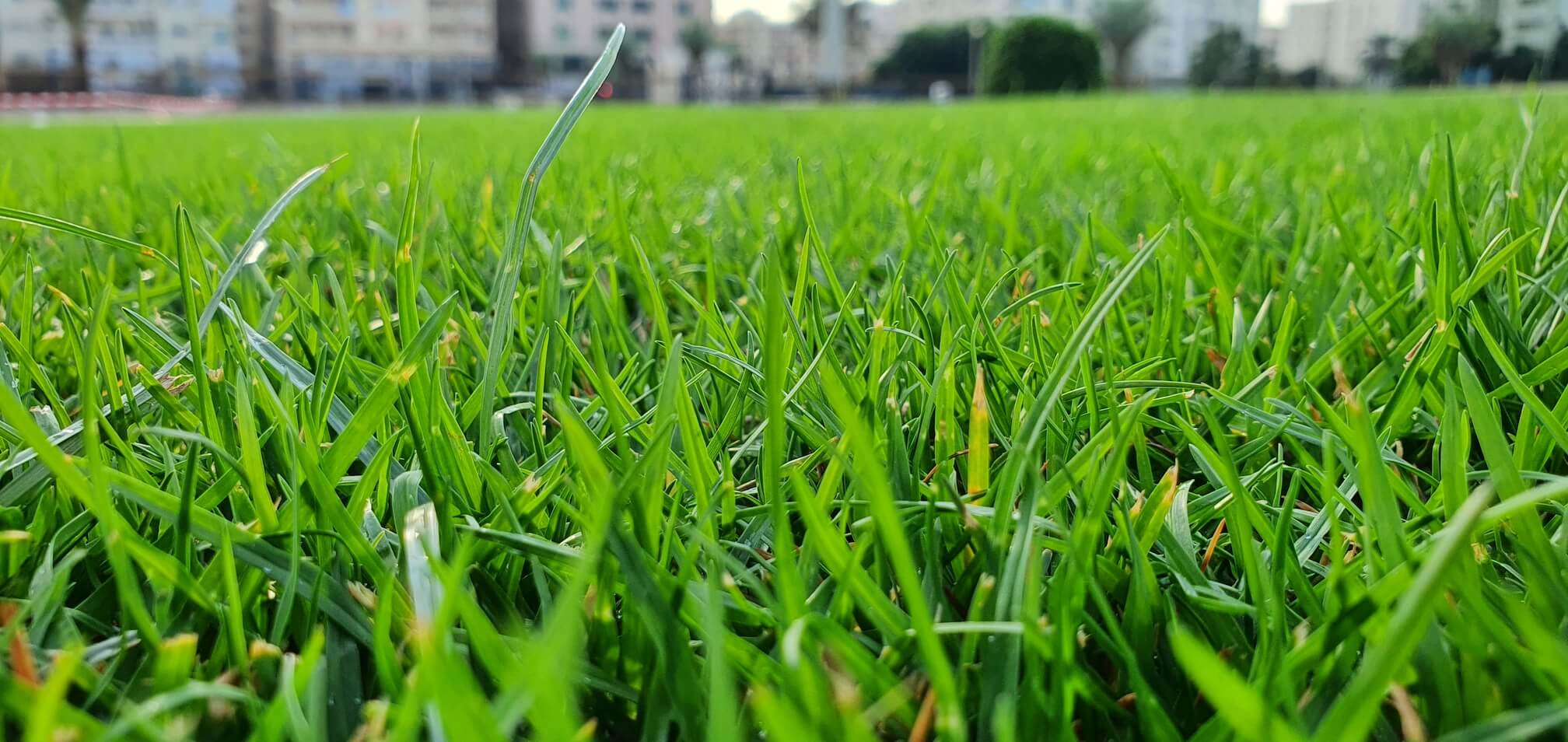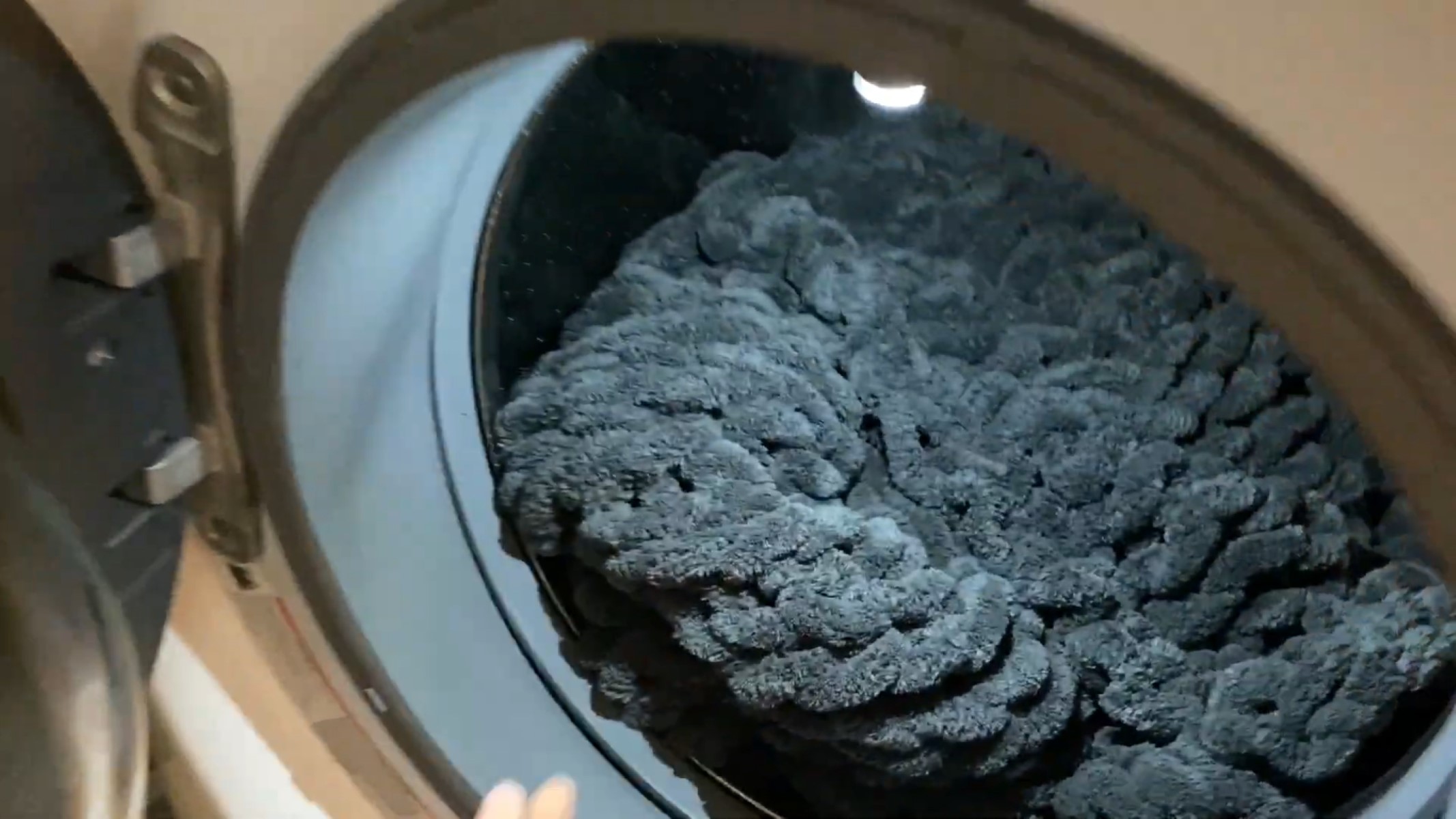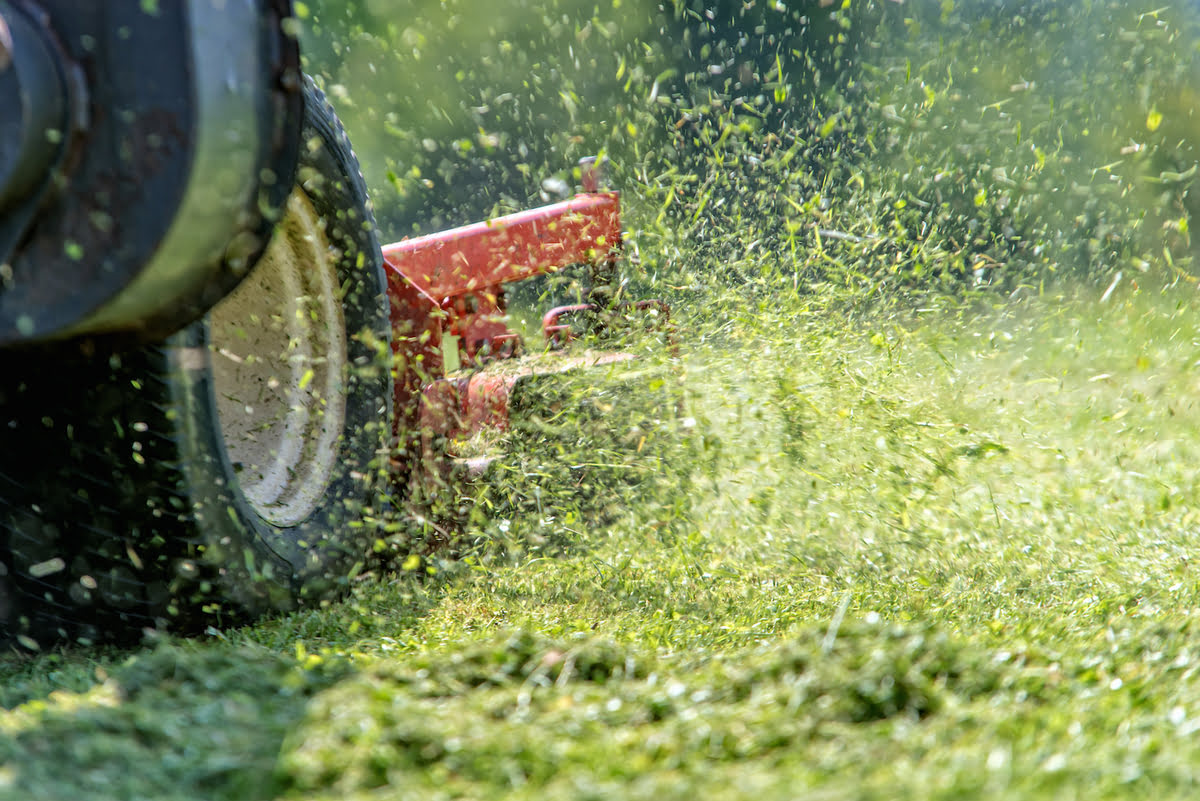Home>Gardening & Outdoor>Landscaping Ideas>Why Does Grass Smell


Landscaping Ideas
Why Does Grass Smell
Modified: September 2, 2024
Discover the science behind the pleasant aroma of grass and explore how it can enhance your landscaping ideas. Uncover the secrets of why grass smells and how it can elevate your outdoor space.
(Many of the links in this article redirect to a specific reviewed product. Your purchase of these products through affiliate links helps to generate commission for Storables.com, at no extra cost. Learn more)
Introduction
Have you ever taken a deep breath while walking through a freshly mowed lawn and been greeted by that delightful, earthy scent? That distinctive smell is no coincidence; it’s a result of a fascinating interplay of chemistry, nature, and human perception. In this article, we’ll delve into the captivating world of grass smell, exploring its chemical composition, its role in nature, and the factors influencing its intensity. Additionally, we’ll unravel the mysteries behind why humans find the smell of grass so appealing. So, let’s embark on a fragrant journey to uncover the secrets of this ubiquitous yet enchanting olfactory experience.
Key Takeaways:
- Grass smell is a result of organic compounds like GLVs and terpenes, creating a pleasant aroma. It serves as a form of communication in nature and attracts beneficial insects, enriching ecosystems.
- The smell of grass triggers emotional responses in humans, evoking nostalgia and tranquility. It is influenced by environmental factors, grass species, and human activities, creating a dynamic olfactory experience.
Read more: Why Does Grass-Fed Beef Smell
Chemical Composition of Grass
Grass, the ubiquitous green carpet covering vast expanses of land, emits a distinct aroma that captivates our senses. This olfactory delight is attributed to a blend of organic compounds released by the grass itself. One of the primary contributors to the characteristic smell of freshly cut grass is a group of compounds known as green leaf volatiles (GLVs). These GLVs include substances such as hexanal, hexenol, and 2,4-hexadienal, which are responsible for the sweet, tangy, and slightly spicy notes that waft through the air.
Furthermore, the delightful scent of grass is also a result of a class of compounds called terpenes, which are commonly found in the essential oils of various plants. These terpenes, including pinene and limonene, contribute to the fresh, pine-like fragrance that enhances the overall olfactory experience of being near grass.
Moreover, grass emits a chemical compound called geosmin, which translates to “earth smell.” Geosmin is produced by soil-dwelling bacteria and is released into the air when the grass is mowed or trampled. This compound adds an earthy, musty aroma to the overall scent profile, creating a multisensory experience that evokes images of nature’s vitality.
It’s the harmonious combination of these organic compounds that gives grass its distinctive and pleasant aroma, making it a quintessential element of the great outdoors.
Role of Grass Smell in Nature
The alluring scent of grass serves a myriad of essential functions in the natural world, playing a crucial role in the survival and propagation of various organisms. One of the primary purposes of the grass’s aroma is its role in plant defense. When grass is damaged, whether by grazing animals or lawn mowers, it releases volatile organic compounds as a form of chemical signaling. These compounds act as a warning signal to neighboring plants, alerting them to the potential threat of herbivory. This process, known as “green leaf volatile signaling,” helps nearby plants prepare for potential damage by activating their defense mechanisms, such as producing chemical deterrents or strengthening their cell walls.
Additionally, the scent of grass plays a vital role in attracting beneficial insects. Certain compounds released by grass, such as terpenes, act as natural attractants for pollinators and other beneficial insects. This not only aids in the pollination of grass and other surrounding plants but also contributes to the overall biodiversity of the ecosystem. The fragrance of grass serves as a beacon, inviting a diverse array of insects to partake in the ecological tapestry of the natural world.
Moreover, the earthy aroma of grass, particularly the geosmin compound, serves as a vital component of the earth’s olfactory landscape. Geosmin is also responsible for the pleasant smell that emanates from the soil after a refreshing rain. This distinctive scent not only adds to the sensory experience of nature but also plays a role in guiding certain organisms, such as earthworms, toward suitable habitats. The enticing fragrance of grass and soil contributes to the intricate web of interactions that sustain life on our planet.
Overall, the captivating scent of grass is not merely a pleasant olfactory experience for humans; it is an integral part of the intricate web of communication and interaction within the natural world, enriching ecosystems and contributing to the resilience and biodiversity of our environment.
Grass releases a chemical called geosmin when it’s cut or damaged, which gives it that fresh, earthy smell. This is the same compound that gives soil its pleasant aroma after it rains.
Human Perception of Grass Smell
The smell of grass holds a special place in the olfactory repertoire of humans, evoking a sense of nostalgia and tranquility. When humans encounter the scent of freshly cut grass, it often elicits a profound emotional response, triggering memories of leisurely outdoor activities, picnics in the park, or simply the joy of being surrounded by nature. This unique connection between humans and the smell of grass can be attributed to both biological and psychological factors.
From a biological standpoint, the human sense of smell is intricately linked to the limbic system, the part of the brain responsible for emotions and memory. The olfactory receptors in the nose capture the volatile compounds released by grass, sending signals to the brain that are closely associated with emotional processing and memory formation. As a result, the smell of grass can evoke a sense of calm and well-being, often transporting individuals to idyllic outdoor settings from their past experiences.
Psychologically, the scent of grass is often associated with leisure, relaxation, and the great outdoors. This connection is deeply rooted in cultural and societal influences, where the aroma of freshly cut grass is synonymous with recreational activities, outdoor sports, and the simple pleasures of nature. As a result, the smell of grass has become intertwined with positive experiences and a sense of freedom, contributing to its widespread appeal among individuals of all ages.
Furthermore, the pleasant and familiar fragrance of grass can have a calming effect on the mind, serving as a natural stress-reliever for many individuals. Studies have shown that exposure to natural scents, including the aroma of grass, can have a positive impact on mood and overall well-being, further reinforcing the allure of this natural fragrance.
In essence, the human perception of grass smell transcends mere olfactory sensation; it encompasses a rich tapestry of emotions, memories, and cultural associations that make it a cherished and comforting element of the human experience.
Factors Affecting Grass Smell
The intensity and character of the smell emanating from grass are influenced by a myriad of factors, ranging from environmental conditions to the type of grass and its physiological state. Understanding these variables provides valuable insights into the complexities of the olfactory experience associated with grass and the factors that contribute to its unique aroma.
Environmental factors play a significant role in shaping the olfactory profile of grass. Sunlight, temperature, and humidity levels can impact the production and release of volatile organic compounds from grass. For instance, higher temperatures and abundant sunlight can enhance the emission of certain compounds, intensifying the overall fragrance. Conversely, moisture levels in the air and soil can modulate the release of specific odorous compounds, influencing the perceived scent of grass in different climatic conditions.
The species and variety of grass also contribute to the diversity of grass smells. Different types of grasses emit distinct combinations of volatile compounds, resulting in a wide range of olfactory profiles. For example, the sweet, floral scent of freshly mown clover differs from the earthy, herbaceous aroma of cut ryegrass, showcasing the rich tapestry of fragrances associated with various grass species.
Furthermore, the physiological state of the grass, including its growth stage and health, can impact the intensity and composition of its scent. Young, actively growing grass may emit fresher, more vibrant fragrances, while stressed or damaged grass could release compounds associated with distress, altering the olfactory experience. Additionally, the presence of certain nutrients and chemicals in the soil can influence the aroma of grass, further contributing to the complexity of its scent profile.
Human activities, such as mowing and trampling, also play a role in shaping the perception of grass smell. The act of mowing grass disrupts its cellular structure, triggering the release of volatile compounds and intensifying the overall fragrance. Similarly, human foot traffic can crush grass blades, releasing additional odorous compounds and altering the olfactory landscape of the surrounding area.
In summary, the smell of grass is a multifaceted sensory experience shaped by a multitude of environmental, biological, and human-related factors. By unraveling the intricacies of these influences, we gain a deeper appreciation for the captivating and dynamic nature of grass aroma.
Read more: Why Does Dead Grass Smell So Bad
Conclusion
The enchanting aroma of grass, with its blend of green leaf volatiles, terpenes, and geosmin, is a testament to the intricate chemistry and natural artistry of the plant world. This olfactory masterpiece serves as a vital form of communication in nature, influencing plant defense mechanisms and attracting a diverse array of beneficial insects. Moreover, the human perception of grass smell transcends mere sensation, evoking a tapestry of emotions, memories, and cultural associations that enrich the human experience.
As we’ve explored the factors affecting grass smell, from environmental conditions and grass species to human activities, we’ve gained a deeper understanding of the dynamic interplay that shapes the olfactory landscape. The scent of grass is a symphony of nature, harmonizing with the elements and human interaction to create a sensory experience that resonates deeply within us.
Ultimately, the allure of grass smell lies in its ability to transport us to idyllic outdoor settings, evoke cherished memories, and offer a sense of tranquility and well-being. Whether it’s the aroma of a freshly mowed lawn or the earthy scent after a refreshing rain, the fragrance of grass serves as a timeless reminder of the beauty and vitality of the natural world.
So, the next time you encounter the delightful scent of grass, take a moment to appreciate the symphony of organic compounds, environmental influences, and human connections that converge to create this captivating olfactory experience. Embrace the fragrance, immerse yourself in its nostalgic embrace, and revel in the timeless allure of grass smell.
Frequently Asked Questions about Why Does Grass Smell
Was this page helpful?
At Storables.com, we guarantee accurate and reliable information. Our content, validated by Expert Board Contributors, is crafted following stringent Editorial Policies. We're committed to providing you with well-researched, expert-backed insights for all your informational needs.















0 thoughts on “Why Does Grass Smell”